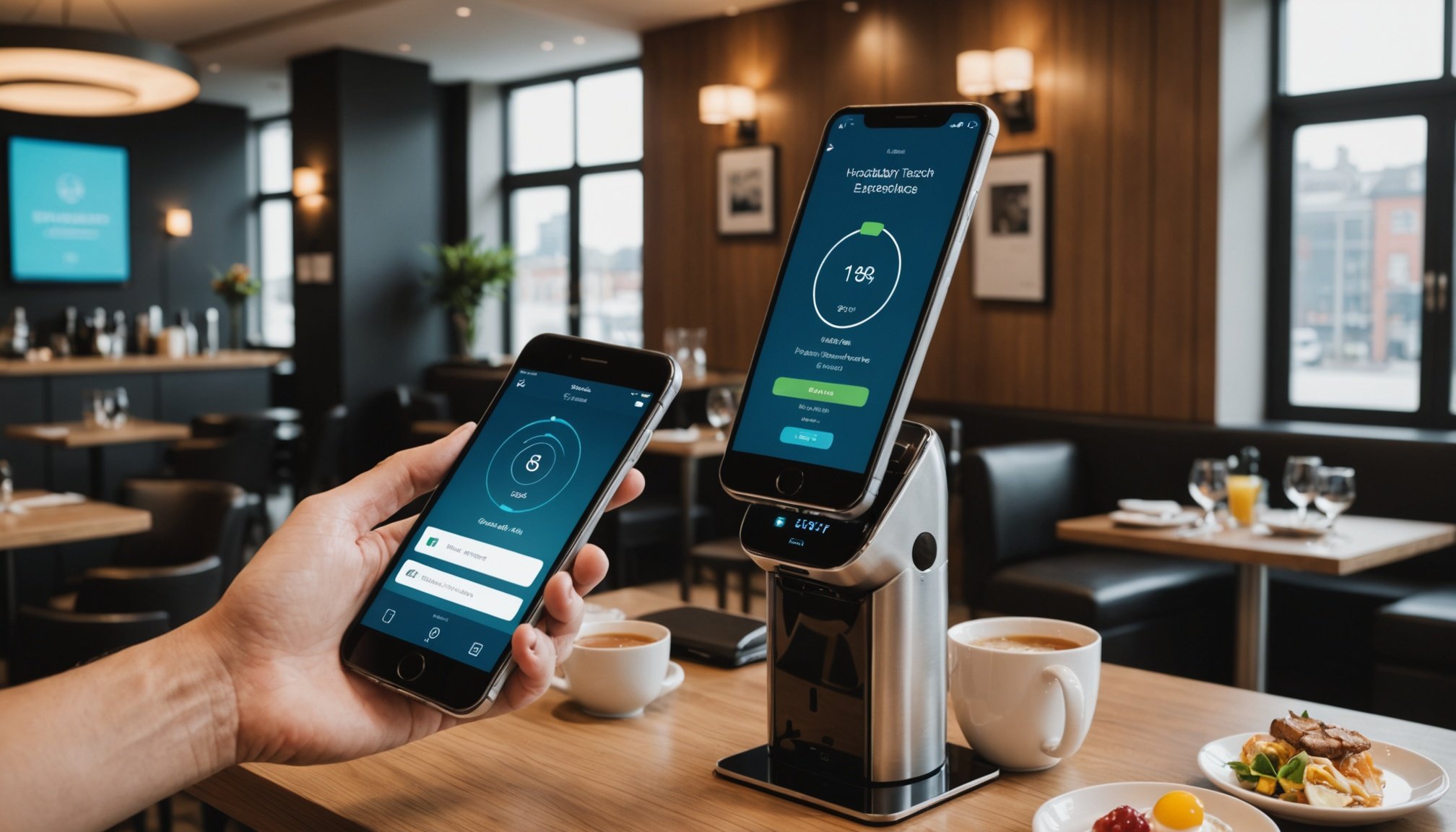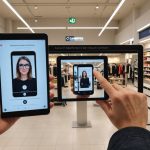Overview of Smart Technology in the UK Hospitality Sector
The rise of smart technology in the UK has transformed the hospitality sector, reshaping guest experiences significantly. Hotels now employ various smart solutions to elevate service quality. Key statistics reveal that over 70% of UK hotels have integrated some form of smart technology, from room automation systems to AI-driven chatbots. This trend is not just a luxury but a necessity to stay competitive.
In today’s market, embracing innovation allows hoteliers to offer bespoke experiences that meet evolving customer expectations. For instance, smart locks enhance security while enabling seamless, keyless entry. This innovation aligns with guests’ desire for more personalised and efficient interactions.
Also read : Developing an effective employee training blueprint for uk smes: a path to success
- Smart Technology Applications:
- AI chatbots for instant customer service
- IoT devices for tailored room settings
- Mobile apps for reserving amenities
The adoption of these technologies is a response to changing UK hospitality trends, where customer satisfaction is paramount. Facilities that leverage technology effectively foster a modern, dynamic environment that distinguishes them from competitors. As technology continues to evolve, the hospitality industry must remain agile, constantly integrating new solutions to meet the diverse needs of consumers, ultimately enhancing the overall guest experience.
Innovative Smart Technologies Enhancing Guest Experiences
The rise of IoT devices in the hospitality industry is revolutionizing how services are delivered. These connected tools streamline operations, bringing numerous improvements to guest experiences and hotel efficiency. Whether it’s mobile check-in or seamless room service, the integration of IoT technology helps hotels stay competitive and deliver enhanced experiences.
Also to read : Maximizing omnichannel success: innovative approaches for uk retailers to elevate customer experience
IoT Devices in Hospitality
Internet of Things (IoT) devices are transforming hotel operations by connecting various systems. This seamless interaction allows for real-time data collection and analysis, which improves service delivery and operational efficiency. For example, IoT-enabled sensors can monitor room temperature and lighting, adjusting them to optimal levels based on guest preferences, thereby enhancing comfort and efficiency.
Mobile Check-In Solutions
Mobile check-in has become a standard feature in many hotels, streamlining the arrival experience for guests. By using their smartphones, guests can check in without queuing at the front desk. This not only saves time but also promotes no-contact interactions, an essential feature in today’s world.
Smart Room Controls and Personalization
Through smart room controls, guests enjoy personalized environments that enhance their stay. IoT devices enable this customization, from adjusting room lighting to configuring entertainment systems. UK hotels are at the forefront of adopting these technologies, providing case studies that highlight their success in elevating guest satisfaction while optimizing energy use.
Benefits of Implementing Smart Technologies
Implementing smart technologies in the hospitality industry can lead to improved guest satisfaction. Guests value seamless experiences, and technology enhances this by offering conveniences such as online check-ins, mobile keys, and personalised services. By integrating smart solutions, hotels cater to modern travellers’ expectations, ultimately elevating their satisfaction levels.
Moreover, smart technologies significantly boost operational efficiency. Automation of repetitive tasks, such as booking management and room cleaning schedules, allows staff to focus on more engaging tasks, enhancing the guest experience. Smart systems optimise energy management, reducing waste and operational costs, further contributing to business efficiency.
In a crowded industry, smart technologies offer a competitive advantage. Hotels adopting innovative solutions can differentiate themselves by providing superior services. This differentiation is crucial in attracting tech-savvy guests who appreciate cutting-edge amenities. By keeping pace with technological advancements, establishments position themselves as industry leaders, paving the way for sustained success.
By embracing these advances, hospitality businesses not only meet but exceed guest expectations. Investing in smart technologies is a strategic move towards achieving long-term growth and maintaining relevance in a rapidly evolving market.
Implementation Strategies for Smart Technologies
Adopting smart technologies in any industry requires a strategic approach to maximise effectiveness.
Assessing Technology Needs
To begin with, assessing technology needs is crucial. This involves identifying which technologies will enhance operational efficiency. A thoughtful evaluation will consider the specific requirements of the organisation and existing challenges that technology adoption can resolve. It’s essential to prioritise these needs before making any major decisions to ensure that the new setup aligns with the overall business goals.
Training and Engaging Staff
Training staff plays a pivotal role in successful technology implementation. The introduction of any new system must be accompanied by comprehensive training programmes. Engaged and knowledgeable staff will not only use new technologies effectively but also share their learnings with peers, fostering a collaborative environment. Encourage continuous feedback from employees to improve the integration process and address any issues proactively.
Budgeting for Smart Technology Investments
Budget considerations are another fundamental aspect. Developing a clear financial plan is needed to support ongoing technology investments. Start by mapping out the costs and potential return on investment (ROI). This way, decision-makers can prioritise expenditures and ensure that investments are sustainable in the long term. A strategic budget will also accommodate unforeseen expenses while paving the way for future upgrades or expansions.
Real-World Applications in UK Hotels
In recent years, the integration of smart technology in UK hotels has transformed the industry, creating compelling case studies and success stories. Notable hotels such as The Savoy in London and Hotel Football in Manchester have embraced these innovations, leading the way for technological advancement across the region. Their commitment to smart solutions is evident in their enhanced guest experiences and operational efficiencies.
A thorough analysis of guest feedback reveals that comfort and convenience have significantly increased post-technology implementation. Guests have expressed high satisfaction levels with features like app-based room controls and AI concierge services, fostering a more personalised experience. Such technological integration has not only improved guest satisfaction but has also garnered positive attention in the hospitality market.
Despite the evident advantages, several challenges emerged during the technology integration process. Issues like data security, the complexity of the systems, and initial costs were significant hurdles. However, these challenges were strategically addressed through comprehensive staff training and robust cybersecurity measures, ensuring a smooth transition.
Ultimately, these success stories underscore the potential and practicality of smart technology within the hospitality sector, setting an inspiring precedent for other hotels aiming to innovate and improve their offerings.
Future Trends in Smart Technology for Hospitality
The shift towards smart technology in the hospitality industry is accelerating, with several emerging technologies poised to redefine the landscape. Industry predictions suggest significant advancements that will transform guest experiences.
Potential Emerging Technologies
Smart technology in hotels is on the precipice of a revolution. NFC (Near Field Communication) and IoT (Internet of Things) devices are becoming more common, allowing guests to interact seamlessly with room amenities. AI-powered chatbots are set to provide instant customer service and personalised recommendations, anticipating the future landscape of hospitality.
Expert Opinions and Predictions
Industry experts foresee AI and machine learning playing central roles in managing hotel operations and enhancing guest satisfaction. Predictions also highlight the increased use of smart mirrors and voice-activated devices to control room environments, providing a more intuitive guest experience and supporting industry predictions.
Adaptation to Evolving Guest Expectations
Understanding and addressing evolving guest needs in the digital age is crucial. Guests increasingly desire personalised experiences, which emerging technologies can deliver. Hoteliers are preparing to meet expectations by investing in solutions that offer convenience and personalisation, aligning with the future landscape’s demands. This strategy aids in developing a forward-thinking approach to guest interactions and service delivery.











